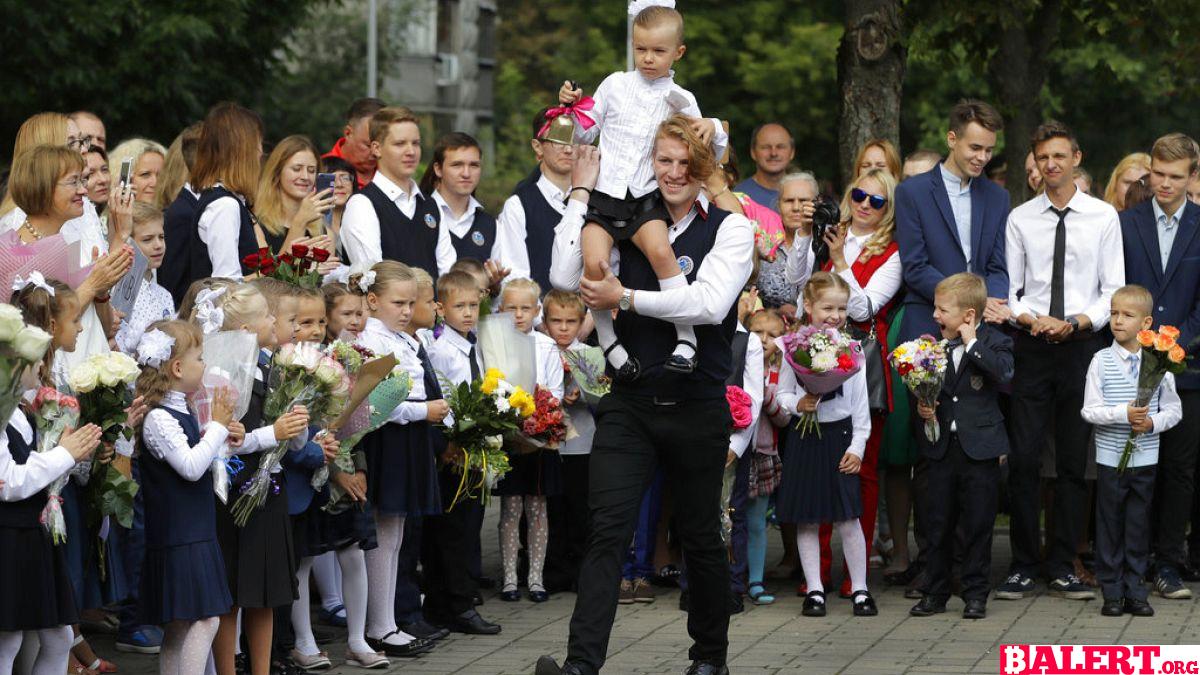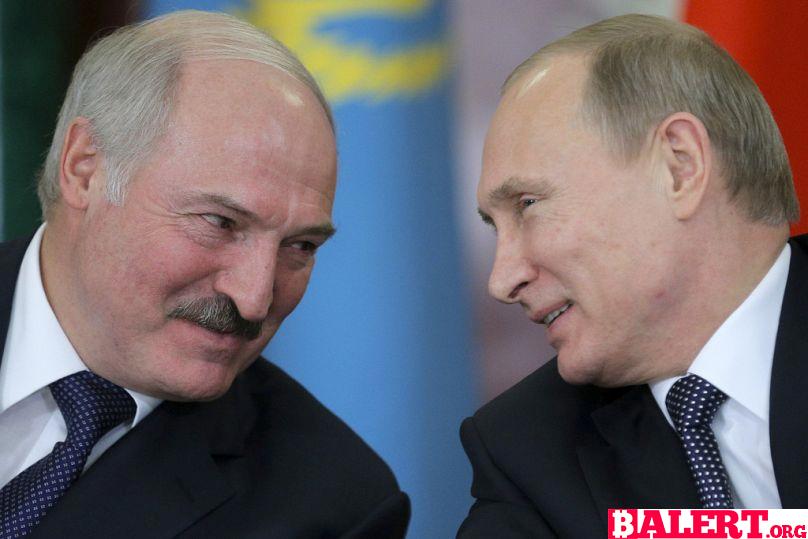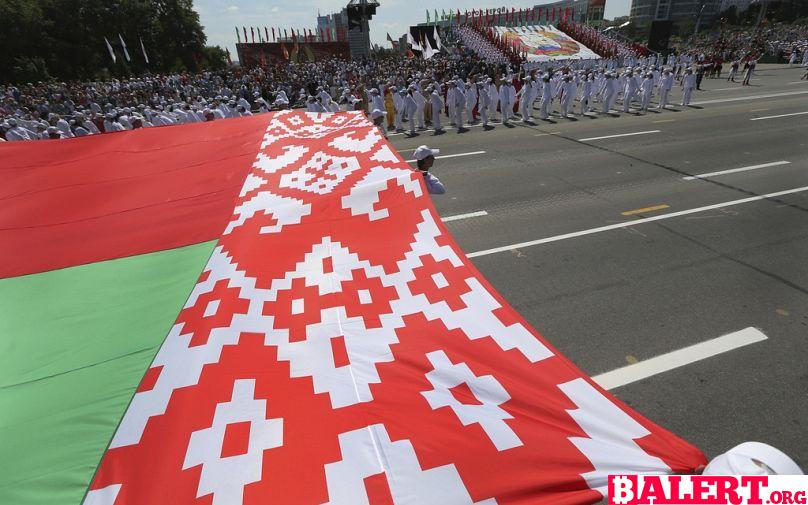World
The Ongoing Russification of Belarus: Cultural Identity Under Siege
Explore the complexities of cultural identity in Belarus as the ongoing Russification threatens its heritage. This article delves into the implications for national identity and the resilience of Belarusian culture under pressure.

Russification in Belarus: A Cultural Shift

As the school year commenced in Belarus, Mikalay, a 15-year-old student, found himself in a disconcerting situation. His teachers and school administrators no longer addressed him by his given name. Instead, they referred to him as Nikolai, the Russian equivalent. To further complicate matters, his classes had transitioned to being taught in Russian, a departure from the Belarusian language he had spoken for most of his life.
This shift is emblematic of a broader trend of Russification currently sweeping across Belarus, as Moscow intensifies its efforts to expand its political, economic, and cultural influence, effectively overshadowing the unique identity of this neighboring nation. This is not a new phenomenon; historically, during both the czarist and Soviet periods, Russia imposed its language, symbols, and cultural institutions upon Belarus. However, following the dissolution of the USSR in 1991, Belarus began to reclaim its cultural heritage. Belarusian was briefly designated as the official language, and the national flag was changed to the white-red-white design, replacing the Soviet emblem featuring the red hammer and sickle.
Related
- Starved and excommunicated: What is happening to Belarusian political prisoner Maria Kalesnikava?
The political landscape began to shift dramatically in 1994 when Alexander Lukashenko, a former Soviet collective farm official, assumed power. He made the controversial decision to recognize Russian as an official language alongside Belarusian and eliminated nationalist symbols from the public sphere. Now, after more than three decades of Lukashenko’s rule, Russia has come to dominate various facets of life in Belarus, which is home to 9.5 million people. The Belarusian language has become increasingly rare in the streets of Minsk and other major cities, with official business conducted primarily in Russian, and the media largely dominated by Russian content. Lukashenko himself exclusively uses Russian, and government officials frequently sidestep using the Belarusian language.
Belarus remains economically tethered to Russia, relying heavily on Russian loans and access to affordable energy. This relationship has fostered a political and military alliance, allowing President Vladimir Putin to station troops and missiles in Belarus, effectively using it as a launching point for the ongoing conflict in Ukraine.
Svetlana Alexievich, the 2015 Nobel Prize winner in Literature and a Belarusian expatriate, poignantly remarked, “I understand that our Belarus is occupied. … And who is the president there? Not Lukashenko. The president is Putin. The nation has been humiliated, and it will be very difficult for Belarusians to recover from this.”
The situation for Belarusian cultural figures has become dire, with rampant persecution and the closure of hundreds of nationalist organizations. Experts suggest Moscow aims to implement a model in Belarus similar to its initial ambitions for Ukraine when the war erupted in 2022. “It is clear that our children are being systematically stripped of their native language, history, and Belarusian identity. However, parents are strongly discouraged from questioning the ongoing Russification,” shared Anatoly, a father of a Belarusian student, who requested anonymity due to concerns over repercussions.
“We were informed about the synchronization of the educational curriculum with Russia this year and shown a propaganda film accusing Ukrainian special services of allegedly recruiting our teenagers for sabotage activities in Belarus,” he continued. Only a handful of schools have managed to maintain a semblance of Belarusian language instruction. In recent years, one such school witnessed the dismissal of dozens of its teachers, and its Belarusian-language website has since vanished.
Lukashenko has openly criticized the Belarusian language, stating, “Nothing great can be expressed in Belarusian. … There are only two great languages in the world: Russian and English.”
Historically, Belarus was part of the Russian Empire for centuries and became one of the 15 Soviet republics following the 1917 Bolshevik Revolution. The everyday use of the Belarusian language diminished significantly, surviving primarily in the western, northern, and rural regions of the country. In 1994, around 40% of students received their education in Belarusian; today, that figure has plummeted to under 9%. Speaking Belarusian has come to symbolize opposition to Lukashenko’s regime and a declaration of national identity, particularly highlighted during the mass protests following the disputed 2020 election that granted Lukashenko a sixth term. In the wake of a severe crackdown, approximately half a million people fled the country.

In a paradoxical twist, “more individuals wish to speak Belarusian, which has evolved into a symbol of freedom, yet they fear doing so publicly,” noted Alina Nahornaja, the author of “Language 404,” which explores the discrimination faced by Belarusians for using their native language.
Similar to Ukrainians, many Belarusians have expressed a desire for closer ties with Europe, intertwining their nationalistic sentiments with aspirations for freedom. “But the Kremlin quickly recognized the potential threat and initiated a process of creeping Russification in Belarus,” remarked Belarusian analyst Valery Karbalevich. This strategy has given rise to pro-Russian organizations, joint educational programs, and cultural initiatives emerging “like mushrooms after the rain,” occurring against a backdrop of severe repression of anything Belarusian.
During celebrations marking Independence Day in Minsk, Belarusian athletes proudly carry the national flag, yet censorship and restrictions impact not only contemporary Belarusian literature but also its classical works. In 2023, the prosecutor’s office declared the 19th-century poetry of Vincent Dunin-Martsinkyevich, a vocal critic of the Russian Empire, as extremist.
When the Kremlin bolstered Lukashenko against the anti-government protests in 2020, it solidified his loyalty and received free rein in Belarus. “Today, Lukashenko is paying Putin with our sovereignty,” stated exiled opposition leader Sviatlana Tsikhanouskaya. She emphasized that “Belarusian national identity, culture, and language serve as our strongest defenses against the Russian world and the ongoing Russification.” In February, she posted on X that “being labeled as ‘extremist’ means loving your country and speaking your language.”
In a counter-response to these developments, four cities in Belarus now host a “Russia House,” aimed at promoting Russian culture and influence through seminars, film clubs, exhibitions, and competitions. “The objective is to instill Russian narratives, ensuring that as many Belarusians as possible perceive Russian as their own,” explained analyst Alexander Friedman. “The Kremlin spares no expense and operates on a grand scale, which poses a significant threat in a context where Belarus finds itself in information isolation, leaving few to resist the encroaching Russian influence.”
Latushka commented, “Putin published an article denying the existence of an independent Ukraine back in 2021, and even then we understood perfectly well that he was pursuing similar goals in Belarus.”
World
Dominique Pelicot Testifies in Harrowing Rape Trial
Join us as Dominique Pelicot courageously testifies in a harrowing rape trial, shedding light on the complexities of trauma and justice. Her powerful story raises crucial questions about the legal system and the importance of support for survivors.

Dominique Pelicot Takes the Stand in Shocking Rape Trial
In a courtroom drama that has captivated France and garnered international attention, Dominique Pelicot, the man at the center of a harrowing rape trial, finally addressed the court. With tears streaming down his face, he recounted how his wife had been instrumental in helping him cope with a tumultuous past marked by trauma. He revealed that he had endured a sexual assault at the tender age of nine while hospitalized, and he also witnessed a gang rape during his teenage years while working as an apprentice electrician on a construction site.
“She didn’t deserve this, I acknowledge that,” Mr. Pelicot stated, his voice barely audible as he struggled to convey his emotions. The gravity of the situation weighed heavily on him, and the courtroom fell silent, straining to catch his every word.
Now 71 years old, Mr. Pelicot faces serious allegations of drugging his wife, Gisèle Pelicot, whom he has been married to for half a century, over a span of nearly ten years. Prosecutors contend that he used drugs to render her comatose, allowing him to rape her repeatedly. Furthermore, authorities allege that he went so far as to invite numerous men into their home, facilitating a nightmarish scenario where they, too, engaged in the assault of his wife.
Overall, 51 men, including Mr. Pelicot, are on trial concurrently, primarily facing charges related to the aggravated rape of Ms. Pelicot. Among them, one individual has already pleaded guilty to similar crimes, admitting to drugging his own wife to assault her and inviting Mr. Pelicot to partake in the horrific act while she was incapacitated.
Mr. Pelicot’s unexpected testimony came after a tumultuous start to the trial. Just a week in, he was stricken with severe health issues that forced him to miss four consecutive days in court. The head judge ultimately decided to postpone proceedings, as Mr. Pelicot was diagnosed with kidney stones, a kidney infection, and prostate complications, adding yet another layer of complexity to this already harrowing case.
World
Meta Bans Russian State Media Outlets from Social Media Platforms
Explore the implications of Meta’s decision to ban Russian state media outlets from its social media platforms. Understand the impact on information dissemination and the ongoing battle against misinformation in the digital landscape.

Meta Imposes Global Ban on Russian State Media Outlets
In a significant move, Meta Platforms, Inc., the parent company of Facebook, has announced the prohibition of Russian state media outlets, including RT (Russia Today) and Rossiya Segodnya, from all its social media platforms. The decision stems from the company’s concerns regarding the deceptive strategies employed by these media organizations to execute covert influence operations across the internet.
Meta made this announcement on Monday, emphasizing that the ban will be enforced worldwide across its various platforms, such as Instagram, WhatsApp, and Threads. The rollout of this ban is expected to take place over the coming days.
Statement from Meta
A spokesperson for Meta elaborated on the decision, stating, “After careful consideration, we have expanded our ongoing enforcement actions against Russian state media outlets. As a result, Rossiya Segodnya, RT, and other affiliated entities are now banned from our applications globally due to their involvement in foreign interference activities.”
For further insights into this development, watch the video in the player above.
World
Trump Recalls Alleged Assassination Attempt While Golfing
Explore Donald Trump’s chilling recollection of an alleged assassination attempt he experienced while enjoying a round of golf. Delve into the tense moments and his reflections on safety, fame, and the unpredictability of public life.

In a recent interview on the social media platform X, Republican presidential nominee Donald Trump recounted a harrowing incident he claims to have experienced while playing golf. Trump described how, during a peaceful Sunday morning round with friends, the tranquility of the day was abruptly shattered by the sound of gunfire in the air.
“It was a beautiful day, everything was just perfect,” Trump reflected. “Then all of a sudden, we heard shots being fired—probably around four or five in total.” He went on to explain that a Secret Service agent was the first to spot the suspect, who was allegedly armed with an AK-47, a powerful assault rifle.
“The agent saw the barrel of the weapon and immediately took action, returning fire at the barrel and aiming in the direction of the bushes,” Trump detailed. “I would have loved to have sunk that last putt, but we decided it was best to leave the scene promptly.”
Trump expressed his gratitude towards the agents and a vigilant civilian who aided in tracking down the suspect, who was eventually apprehended following a high-speed chase.
Suspect Faces Multiple Federal Gun Charges
The FBI has identified the suspect as Ryan Wesley Routh, accusing him of targeting Trump during his time at the golf club in West Palm Beach, Florida. According to an FBI report, Routh had allegedly hidden among the hedges of the golf course for an astonishing 12 hours. Authorities discovered an SKS-style assault rifle, a GoPro camera, and a bag of food at the scene.
The 58-year-old Routh is now facing two serious federal gun charges. If convicted on both counts, he could face a combined maximum sentence of 20 years in prison. Notably, neither of the charges is directly related to an assassination attempt. The first charge pertains to possessing a firearm despite a prior felony conviction, which carries a potential 15-year sentence, a fine of $250,000 (€225,000), and three years of supervised release.
The second charge involves possession of a firearm with an obliterated serial number, which could result in a five-year prison term, the same financial penalties, and also three years of supervised release. As the investigation continues, additional charges could be forthcoming.
While the motive behind Routh’s actions remains unclear, his digital footprint reveals strong political affiliations, particularly concerning issues surrounding Ukraine and China. Routh consistently expressed support for Ukraine across various social media platforms, even claiming to have orchestrated a recruitment scheme for international volunteers aiming to assist Ukraine in its fight against Russia’s invasion. This behavior has been denounced by Ukrainian soldiers and members of the International Legion, who disavowed Routh’s actions and motives.
-

 Business5 months ago
Business5 months agoThe Significance of Jackson Hole: A Central Banking Tradition
-

 Tech4 months ago
Tech4 months agoNew Leaks and Features About the Samsung Galaxy S25 Ultra
-

 Business6 months ago
Business6 months agoObituary: Dan Collins
-

 Article7 months ago
Article7 months agoCreative Design Applications Developed with Artificial Intelligence
-

 Business4 months ago
Business4 months agoBhutan’s Strategic Investment in Bitcoin: A New Era for the Himalayan Kingdom
-

 World4 months ago
World4 months agoThierry Breton Resigns: Impact on European Union Leadership
-

 Gaming4 months ago
Gaming4 months agoNew Details and Trailer Released for Dead Rising Deluxe Remaster
-

 Gaming4 months ago
Gaming4 months agoNew Details for Alan Wake 2 and PlayStation 5 Pro Announcement












